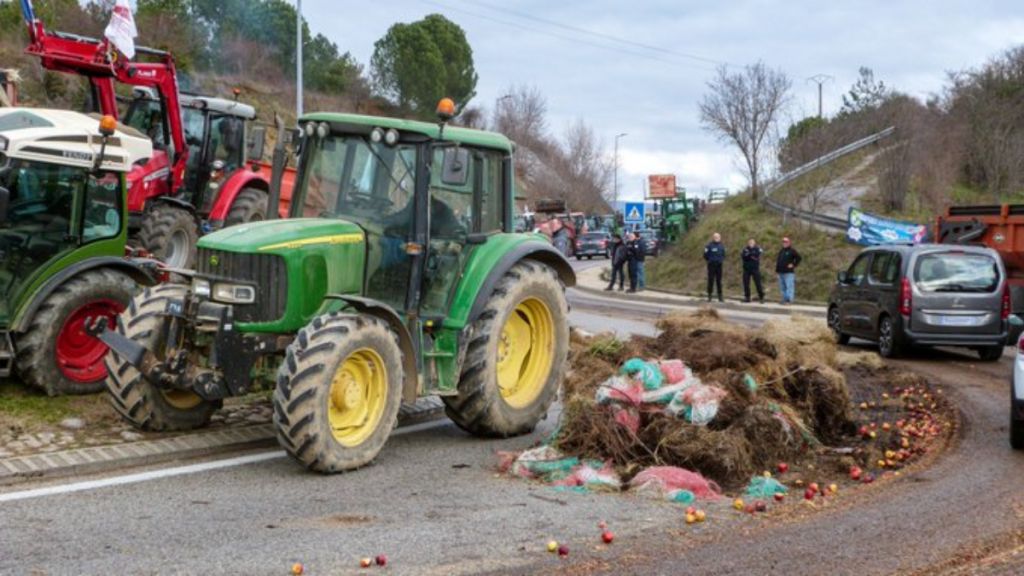
Paris: On the eve of the opening of the G20 summit in Brazil, French farmers are preparing large scale protests all over the country to show their outrage against the free trade agreement between Europe and South America. This agreement between the European Union and Mercosur was initially signed in June 2019. What is it essentially about?
25 years of negotiations led to the arrival of a free trade agreement between the European Union and Mercosur, an economic alliance that represents 80% of South America's GDP. There are two main objectives to this agreement: to increase trade relations and to promote cooperation and political dialogue. It is of course the “trade” component that raises concerns. Especially since the particularity of this agreement is that it is often presented as a "meat for cars" agreement.
French farmers are up in arms against the EU-Mercosur deal. Why? It threatens their livelihoods with cheaper imports from South America, where environmental and labor standards differ greatly. They fear market flooding with products like beef and sugar, potentially produced with… pic.twitter.com/gC5XDFhHyf
— Mohammad Arsh Alam (@TrailEvo) November 18, 2024
The EU will import mainly food and agricultural products from the Mercosur countries. The farmers fear that the competition conditions are unfair, as these products do not meet the same environmental, social or even health standards as in Europe, in the event of poor quality control standards.
As for exports, trade will mainly concern the automobile industry but also the chemical, pharmaceutical and textile sectors. The treaty will be a huge boon for European companies that want to export. For the EU, it is a way to reduce its dependence on China.
This agreement a colossal one, involving 40 and 45 billion euros and will concern nearly 800 million people. While this prospect of free trade alarms the agricultural sector, the European Commission swears that these will be “small volumes” of imports.
French #farmers are protesting on Monday.
— FRANCE 24 English (@France24_en) November 18, 2024
The prospect of a trade deal between EU and Mercosur countries is sharpening discontent over foreign competition that fuelled a farming crisis earlier this year.
Reuters & AP photo pic.twitter.com/aqkUxeSVMX
For instance, products of the South American Mercosur countries, whose customs duties will be reduced or even eliminated, will be a maximum of 99,000 tonnes for beef, or 1.6% of EU production. For pork, it will be 25,000 tonnes (0.1% of EU production), for poultry 180,000 tonnes (1.4%) and sugar 190,000 tonnes (1.2%).
Brussels assures that the agreement represents opportunities for European products too currently held back in Latin America, such as wine (currently taxed at up to 27%).
Even if the volumes concerned are low compared to European production, they can shake up the sectors. According to Patrick Bénézit, vice-president of INTERBEV, the French Interprofessional Livestock and Meat Association, the Mercosur countries already supply the bulk of imports of noble cuts. Chicken producers fear that the Brazilians will focus on the most profitable cuts, the fillets.
The ethanol, honey and pork sectors are also at risk, underlines Stefan Ambec, an economist at the INRAE, a public research institute, who mentions in particular the risk of a drop in prices paid to European farmers especially when costs of production highly differ between the two continents.
The European Commission assures us that “all Mercosur products must comply with the EU's strict food safety standards.” Opponents of the agreement are calling for “mirror clauses”, meaning that the rules imposed on European farmers in terms of social, environmental or animal welfare should also be imposed on Mercosur producers in order to avoid distortions of competition.
The agreement includes “a safeguard clause”, a sort of “emergency brake” in the event of a sudden increase in imports or perverse effects on the market, Brussels stresses.
Agricultural organisations from major European producer countries such as Germany, Italy, Poland, Austria and Spain have denounced the proposed free trade agreement, but the response from their governments is more nuanced than that of France, which remains the most vehement in its up opposition.
The COPA-COCEGA the strongest European organisation of the majority EU trade unions called on the EU to review this project and to defend a trade policy that upholds the rigorous standards of European agriculture.
French President, Emmanuel Macron, who is currently on a tour of South America reassured the French farmers saying that, he would continue to “oppose the deal” between the EU and the Mercosur and “would not sign it in its current state.”